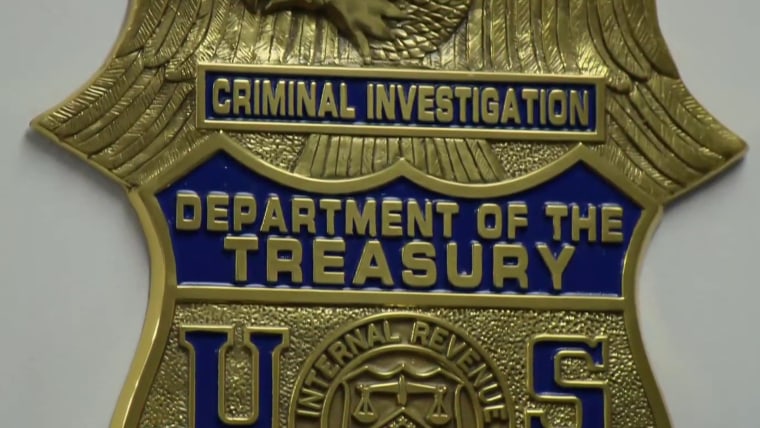A number of days earlier than Christmas final 12 months, Philip Martin sat in entrance of his laptop to test his cryptocurrency stability. It was the start of what would develop into, for him, an ongoing nightmare.
Martin instructed NBC News he thought he was typing the online deal with for his cryptocurrency change, Coinbase, the most important and best-known firm for customers to retailer their digital cash. But actually, he says, hackers had spoofed the url, altering it so barely that it even fooled his internet browser — which prompted him to routinely enter his log-in and password.
The crooks now had all of the information they wanted to steal his life financial savings — and so they did. Martin turned the most recent sufferer in what has been a wave of cryptocurrency hacks and thefts, one which consultants say raises questions on whether or not higher regulation is required.


“It’s been very frustrating,” mentioned Martin, who’s out $165,000 value of Ethereum, a preferred cryptocurrency. “I’ve had panic attacks.”
Martin mentioned he was capable of hint the place the thieves transferred his stolen crypto, given that every one Ethereum transactions are revealed on a public ledger. He contacted each native and federal regulation enforcement. But so as to add insult to harm, the FBI subject workplace in Los Angeles in the end instructed him his loss was not giant sufficient to advantage investigation.
“Unfortunately, due to the dollar amount involved in your complaint, management has determined that it does not rise to our required threshold level and the FBI will not be moving forward with an investigation at this time,” wrote Special Agent Elizabeth Hammond, in an e-mail Martin offered to NBC News.
Laura Eimiller, spokeswoman for the FBI’s Los Angeles subject workplace, mentioned she wouldn’t touch upon any particular case.
“Like with many prolific and evolving schemes, we are not going to arrest or prosecute our way out of this,” she mentioned. “Whether it’s individuals or businesses, education is the key. We urge people to visit IC3.gov (The Internet Complaint Center) to familiarize themselves with the latest trends.”
Martin additionally blames Coinbase, which payments itself as a “secure online platform for buying, selling, transferring, and storing cryptocurrency.”
“Coinbase is basically saying that they’re not responsible, and every user is responsible to secure their own device, laptop or phone,” he mentioned. “These crypto exchanges don’t have any regulation that’s compelling them to be on the side of the customer and provide protection to help in these type of situations that, in my opinion, they are responsible for, of not providing enough cybersecurity on their own URL address.”
A Coinbase spokesman wouldn’t touch upon the particular case, saying in an announcement that “Coinbase customers should also be wary of phishing attempts and never click on a link or engage with an email that isn’t from the domain Coinbase.com.”
The firm added that “scams, fraud and other crimes can have a significant impact on customers, and we take extensive security measures to ensure our customer accounts remain safe. We regularly educate our customers on how to avoid cryptocurrency scams and report known scams to appropriate law enforcement authorities. We encourage all our customers to take important steps to securing their online accounts. “
The kind of scam that befell Martin is not the only method through which consumers have lost cryptocurrency. In several instances, crypto exchanges have been hacked. The most famous of those was the 2016 breach of Bitfinex, through which hackers stole Bitcoin valued recently at an astonishing $4.5 billion. In February, the Justice Department announced it had recovered $3.6 billion of that.
One analyst has counted at least 46 exchange hacks since 2012. The value of the losses is difficult to quantify given the fluctuation in the value of various cryptocurrencies, but it appears to be many billions of dollars.
In one recent such hack, crypto trading platform Bitmart pledged to use its own money to reimburse client losses of as much as $196 million.
Lawyer Urzula McCormack, a partner with Hong Kong-based King & Wood Mallesons specializing in cross-border finance and technology, says the threat picture is actually better than it used to be when crypto first emerged.
“There is no doubt though, that there are also areas where people are vulnerable,” she mentioned. “There is a very significant degree of scam activity that that’s occurring. And we also have just really regular hacking risks that occur and really need to be guarded against.”
In March, President Joe Biden issued an government order designed to immediate motion amongst authorities companies to guard customers from crypto dangers, and dozens of payments are pending in Congress that might regulate crypto to 1 diploma or one other.
Some nations have banned advertisements for crypto investments, McCormack mentioned, however such had been featured prominently within the U.S. in the course of the Super Bowl, underscoring the curiosity in crypto as an funding.
But Martin urges warning.
“I think there’s a lot of great potential,” he mentioned. “I just think right now, I personally am hesitant of investing until there’s better consumer protection laws.”



